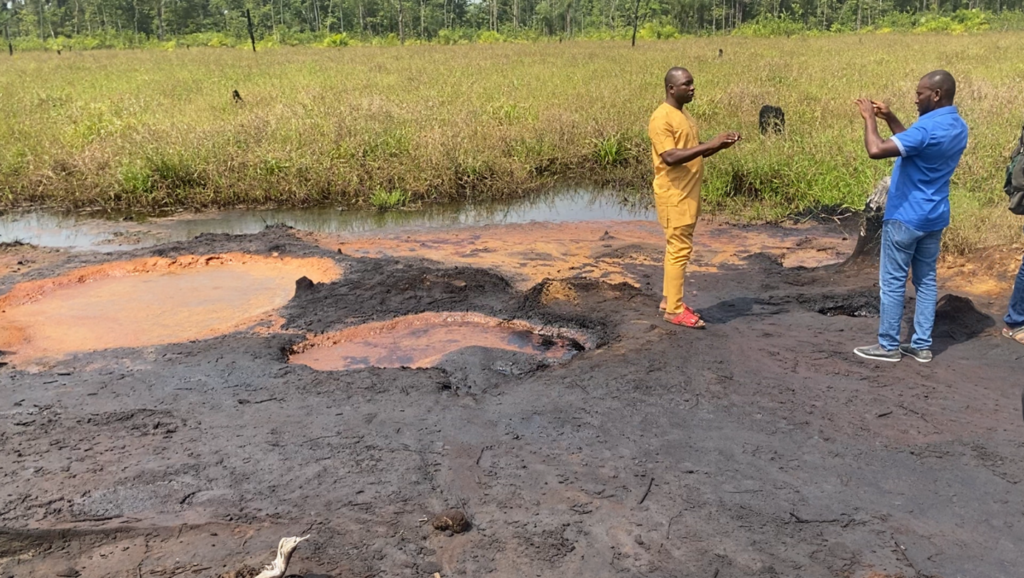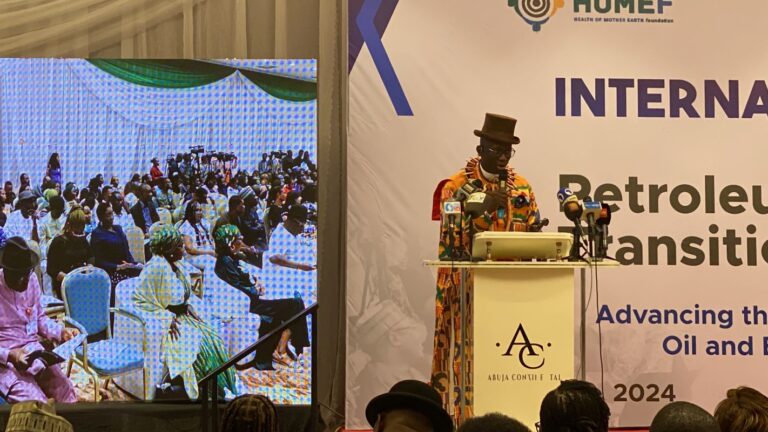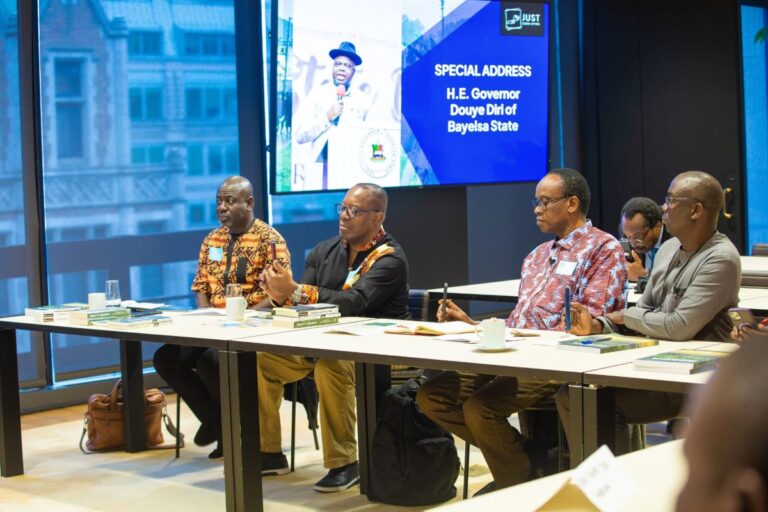Shell Must Clean Up Rumuekpe Before Divesting, Community Insists

As Shell plans to divest its shares in the Shell Petroleum Development Company (SPDC) to the Renaissance Consortium, the people of Rumuekpe in the Niger Delta are demanding that the multinational oil giant address decades of environmental devastation before its exit. The Nigeria Upstream Petroleum Regulatory Commission (NUPRC) had previously rejected the sale due to environmental and social concerns. However, growing pressure from Shell and international stakeholders threatens to override these objections, sparking protests and renewed calls for justice.
Rumuekpe at the Heart of the Struggle
On December 17, 2024, representatives from Rumuekpe joined a peaceful demonstration in Port Harcourt, emphasizing that Shell must clean up the environmental damage caused by decades of oil exploration. Rumuekpe, a community that has hosted multiple multinational oil companies, has endured severe environmental destruction, including oil spills and pollution, without any meaningful development or compensation.
A Legacy of Pollution and Conflict in Rumuekpe
For decades, petroleum exploration in Rumuekpe has left the community with a devastating legacy of pollution and violence. Multinational oil companies, including Shell, Elf, Total, and Agip, have exploited the community’s resources while neglecting their responsibility to the people and the environment. The consequences of these operations are far-reaching, impacting the land, water, and social fabric of the area.
Violence: Beyond Environmental Catastrophe
Oil spills and gas flaring have polluted the soil, water, and air in Rumuekpe, rendering much of the land unsuitable for farming and contaminating vital water sources. Fish stocks have dwindled, forcing residents to abandon traditional livelihoods. Farmers have reported drastically reduced crop yields, with yams and other staple crops unable to grow in the oil-soaked soil. This environmental degradation has led to widespread poverty, malnutrition, and health problems, including respiratory issues and skin diseases caused by prolonged exposure to pollution.
During the height of these tensions in the mid-2000s, rival groups clashed over control of oil facilities and payments by Shell, resulting in the destruction of entire villages, the loss of lives, and the mass displacement of residents. The violence left Rumuekpe as one of the most devastated areas in the Niger Delta.

The environmental destruction caused by oil exploration has further fueled these conflicts. Decades of oil spills, gas flaring, and the contamination of vital water sources have eroded traditional livelihoods, such as fishing and farming. With these economic bases destroyed, many residents have been driven to desperation, intensifying grievances against oil companies and sparking violence within the community. The lack of cleanup efforts and restoration has made it nearly impossible for residents to rebuild their lives, leaving a legacy of poverty and despair.
Decades of Neglect
Despite being one of the earliest oil-producing communities in the Niger Delta, Rumuekpe has received little in return for its resources. Reports by Social Action in 2020 and 2021 documented extensive damage to the land and water, yet no substantial action has been taken to restore the environment or improve living conditions. Basic infrastructure such as clean water, schools, and healthcare remain unavailable, leaving the community to face daily hardships.
Rumuekpe’s experience is emblematic of the broader struggles in the Niger Delta, where resource wealth has fueled conflict rather than development. Addressing these intertwined issues of environmental destruction and socio-political strife is critical to ensuring a just and sustainable future for the community and the entire region.
Community Voices
Hon. Gaius Ajuru: A Call for Responsibility

Hon. Gaius Ajuru, a former councilor from Rumuekpe, highlighted the severe neglect faced by his community. “Rumuekpe was one of the first oil-producing areas, yet we have nothing to show for it,” he said. Ajuru criticized Shell’s abandonment of its environmental responsibilities and pointed to unsafe infrastructure, such as the “monkey bridge” built by Shell, as symbols of the company’s disregard for community welfare. “Who are they leaving their mess for?” Ajuru asked, urging the Nigerian government to ensure Shell fulfills its obligations before divesting.
Chief Innocent Eruro: “They Cannot Leave Without Cleaning Up”

Chief Innocent Eruro, a leader from the Imogu area of Rumuekpe, shared a historical perspective on the community’s struggles. He recounted how oil exploration began during his childhood and has continued for decades without proper accountability from the oil companies. Eruro emphasized the dire need for cleanup and basic services, declaring, “Shell, Elf, Total, Agip – none of them can leave without cleaning up their mess. We will go to any length to ensure we achieve this.”
Women of Rumuekpe: Bearing the Brunt of Environmental Degradation
Women in Rumuekpe have been disproportionately affected by the environmental crisis. Mrs. Blessing Orijos, a community leader, described the challenges faced by local women due to pollution. Contaminated soil has reduced agricultural yields, and polluted water sources have exacerbated health issues. “Our yam barns are empty, and we have no clean water. Shell must not only clean up but also provide essential services like healthcare and education,” Orijos said, highlighting the need for a comprehensive restoration plan.
A Demand for Accountability

The community of Rumuekpe is not asking for favours; they are demanding justice. As Shell plans its exit from the Niger Delta, the people insist that the company must address the environmental and social damages it has caused over decades. Their demands reflect the broader struggle of Niger Delta communities for environmental justice and development.
Conclusion: The Time for Action is Now
The protests in Port Harcourt underscore the urgency of the situation. Social Action and the people of Rumuekpe demand accountability and insist that Shell clean up before divesting. The Nigerian government must ensure that the voices of the affected communities are heard and that international oil companies fulfill their corporate responsibilities.
The fight for justice in Rumuekpe is a fight for the future of the Niger Delta.




